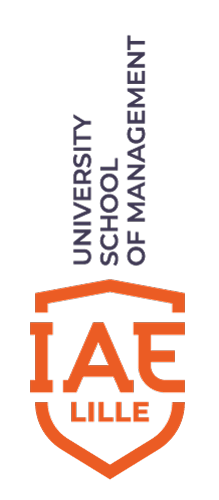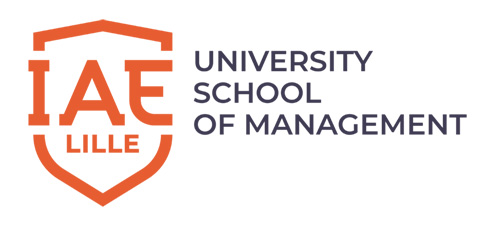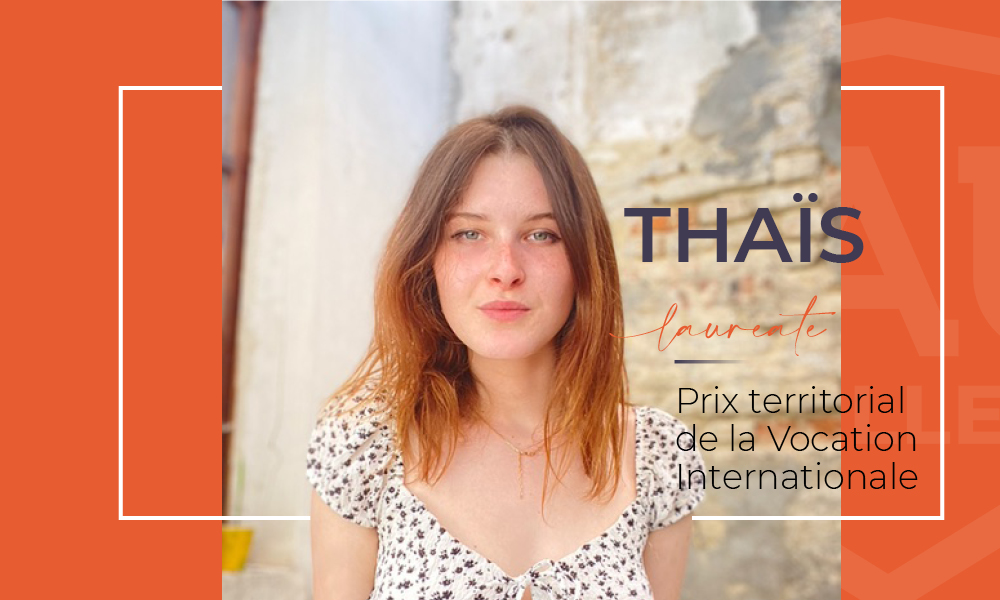BBA, Licence 3

Site Vieux-Lille, 104 avenue du Peuple Belge, 59043 Lille Cedex

Formation
Débouchés
Students are enrolled in a full-time study program from September to July, organized in 2 semesters. Between April and July, students are required to do an internship (min. 6 weeks) abroad or in France in a company or job having an international dimension. Students spending their 2nd semester abroad for an academic exchange are also expected to complete the internship. Student projects are also offered and are a unique opportunity for students to carry out professional assignments or humanitarian/charitable missions while improving their social skills and team-work capacity. Certain projects involve carrying out missions abroad. Finally, we encourage students to spend one semester abroad in one of our partner universities all around the world.
No students are recruited from outside the IAE for the 3rd year only. We welcome incoming exchange students from our partner universities in and outside Europe for one semester or the full academic year.
Volume horaire : 24 h
Organisation : CM
MCC ou évaluation : – Individuelle (50 %) : examen écrit (consultation, cas pratique ou commentaire de jurisprudence) et participation orale aux travaux dirigés (commentaires du document pédagogique)
– Collective (50 %) : travaux de groupe
– Conférence : présenter en 30 mn une synthèse argumentée sur une problématique définie à l’avance, ne pas refaire le cours mais aller plus loin sur un sujet, susciter le débat, quitte à prendre partie, à défendre une thèse (critères d’évaluation : pertinence, exhaustivité, argumentaire balancé, force de conviction, animation des auditeurs)
– Dossier de veille juridique : sur un thème donné, constituer un dossier documentaire d’actualité législative et de jurisprudence en recherchant les textes, les décisions récentes et les commentaires les plus pertinents à vos yeux (faire un choix et non une simple compilation); sous forme de « memo » , identifier les évolutions les plus notables (nouveau texte, attendu de principe), citer les principales références, rédiger une synthèse des modifications du droit positif, analyser leurs conséquences opérationnelles.
Intervenant(s) cours :
Objectifs :
– Acquérir les connaissances de base en droit du travail, sa formation historique, ses fondements théoriques
– Comprendre les enjeux, les difficultés de sa mise en œuvre au sein de l’entreprise, et les acteurs concernés
– Etre capable de rechercher et de comprendre l’information, et d’assurer une veille juridique dans le domaine
– Identifier les interlocuteurs et comprendre les mécanismes de formation et d’application opérationnelle du droit
Objectifs professionnels :
– Comprendre l’impact du droit social dans la fonction de manager et/ou de responsable RH
– Suivre l’actualité de la matière et identifier les enjeux opérationnels des débats
– Acquérir une maîtrise suffisante de la matière pour pouvoir gérer les ressources humaines constituant son équipe en assurant le respect de la législation sociale dans l’entreprise
– Développer les méthodes permettant de sécuriser juridiquement les relations de travail, de prévenir et de faire face aux conflits, de négocier avec l’ensemble des interlocuteurs, de faciliter la résolution des problème rencontrés
Volume horaire : 24 h
Organisation : CM + TD
MCC ou évaluation : Contrôle continu (CC) + Contrôle terminal (CT)
Intervenant(s) cours : Malik Bozzo-Rey
Objectifs :
This course aims to provide students with the theoretical and conceptual tools to develop their own ethical analysis of managerial and organizational phenomena. It is relies on a continuous questioning of the relationships between theory and practice and on a willingness to study practical cases. This course therefore develops an interactive pedagogy that solicits the students’ reflexive abilities. It is also the second part of a course that started in L2 on the same theme. L3 focuses on micro issues (management, individual decision making process).
Volume horaire : 15 h
Organisation : CM
MCC ou évaluation : Contrôle continu (CC)
Intervenant(s) cours : Loïc Martin
Objectifs :
The main objective is to make students mindful of the entrepreneurial approach, in other words, how to go from the ideation to the realization stage and how to build a financial model. Regarding the latter, we will learn how to use a financial forecasting tool in order to simulate in real time the financial stakes to better understand them: sales projections, incomes, delivery and payment deadlines, down payments, expenses, VAT and investments, and to automatically generate the cash flow plan, the WCR, the income statement, the financing plan and the balance sheets over 5 years.
Volume horaire : 24 h
Organisation : CM
MCC ou évaluation : Contrôle continu (CC)
Intervenant(s) cours : Wael El Helou
Objectifs :
This course defines how to utilize and clarify and interpret financial information to evaluate a company’s performance and identify the weak and the strong points of its current financial standing. This course present how to use the accounting measures; the assessment of the balance sheet, the income statement and the statement of cash flows in financial analysis, such as ratio interpretation and EPS evaluation.
Volume horaire : 24 h
Organisation : CM
MCC ou évaluation : Contrôle continu (CC)
Intervenant(s) cours : Thomas Guignard
Objectifs :
This course aims at developing a comprehensive digital marketing optimization strategy for a marketing campaign and knowledge of how to take advantage of the latest developments in digital communication tools (social media strategy, digital advertising, SEO…). This course aims at promoting teamwork, at familiarizing students with the e-marketing approach and collaborative work tools, at presenting a business plan and a project as a team.
Volume horaire : 24 h
Organisation : CD
MCC ou évaluation : Contrôle continu (CC) + Contrôle terminal (CT)
Intervenant(s) cours :
Objectifs :
Volume horaire : 24 h
Organisation : CM
MCC ou évaluation : Contrôle continu (CC) + Contrôle terminal (CT)
Intervenant(s) cours : Anne Vancaelemont, PhD
Objectifs :
As a result of taking this course, students should understand/be able to:
-
Make the difference between qualitative and a quantitative research question and adapt data collection and analysis accordingly.
-
Prepare and conduct participant observation in real life or on the internet.
-
Prepare and conduct semi-structured interviews.
-
Analyze contents using an XLS sheets to identify themes and categories.
-
Make recommendations based on the analysis.
-
Undertake a team oral presentation showcasing the results of their study.
Volume horaire :
Organisation :
Évaluation :
Intervenant(s) cours :
Objectif :
Volume horaire :
Organisation :
Évaluation :
Objectif :
Volume horaire :
Organisation :
Évaluation :
Objectif :
Volume horaire : 24 h
Organisation : CM + TD
MCC ou évaluation : Contrôle continu (CC) + Contrôle terminal (CT)
Intervenant(s) cours : Benoît Roux, Thomas Michau
Objectifs :
– Understanding the global business context
– Understanding factors and issues associated with firms’ internationalization
– Evaluating the potential for internationalization of a product on a given market
– Understanding the ways and means of firms’ internationalization
Volume horaire : 24 h
MCC ou évaluation: The assessment will be composed of two exams, each one counting for 50% of the final grade
Intervenant(s) cours : Thomas Baur
Objectifs :
– Acquiring knowledge of key concepts and theories in Corporate Communications
– Discovering the goals and objectives for Corporate Communications within an organization
– Developing personal and professional skills by applying teachings with business cases
Volume horaire : 24 h
Organisation : CM
MCC ou évaluation : Contrôle continu (CC) + Contrôle terminal (CT)
Intervenant(s) cours : Agnès Libessart
Objectifs :
This course will bring to the students the fundamental tools to achieve a successful international Negotiation. The students will learn how to collect the necessary info (intelligence) to prepare their negotiation in terms of :
- International negotiation Techniques (must know, and avoid beginner’s traps)
- Facts, figures and market datas
- Intercultural specifics
- Personal and emotional intelligence skills (the Negotiator’s soft skills)
The course combines both theoretical and practical group works.
Volume horaire : 24 h
Organisation : CM
MCC ou évaluation : Contrôle continu (CC) + Contrôle terminal (CT)
Intervenant(s) cours : Didier Alluin
Objectifs :
– To understand how an industrial and commercial company is running
– To develop the ability to analyze, to take strategic decisions in a competitive context
– To measure the interaction and impact of the different positions in the company
– To use monitoring and control excel tools.
Volume horaire : 24 h
Organisation :
Évaluation :
Intervenant(s) cours :
Objectifs :
– Discovering operational marketing
– Markets – targets – evolving into the frame / boundaries of marketing strategy – insights for marketing management
– The offer (P product) – range of products
– Place + physical evidence
– Price
– Promotion & Brand
– 2 Ps of service : personnel – importance of customers / consumers – Process
– Putting marketing into motion and actions and monitoring your results (KPI).
Volume horaire :
Organisation :
Évaluation :
Objectif :
Volume horaire :
Organisation :
Évaluation :
Objectif :
Volume horaire :
Organisation :
Évaluation :
Objectif :
Contact
Directeur de la mention
Sébastien DEREEPER
Responsable de la formation
Julie BASTIANUTTI
Secrétariat formation
Julie SABRE





















